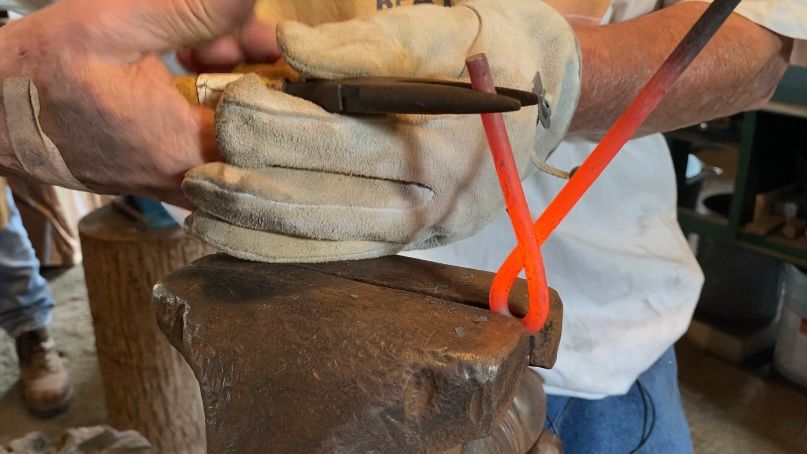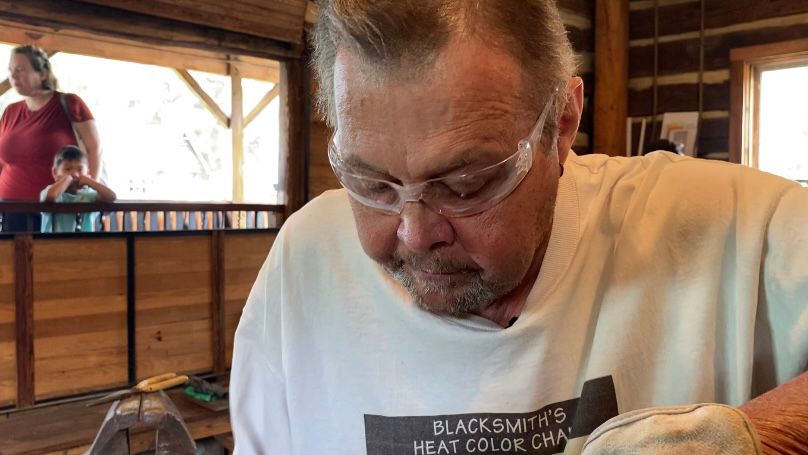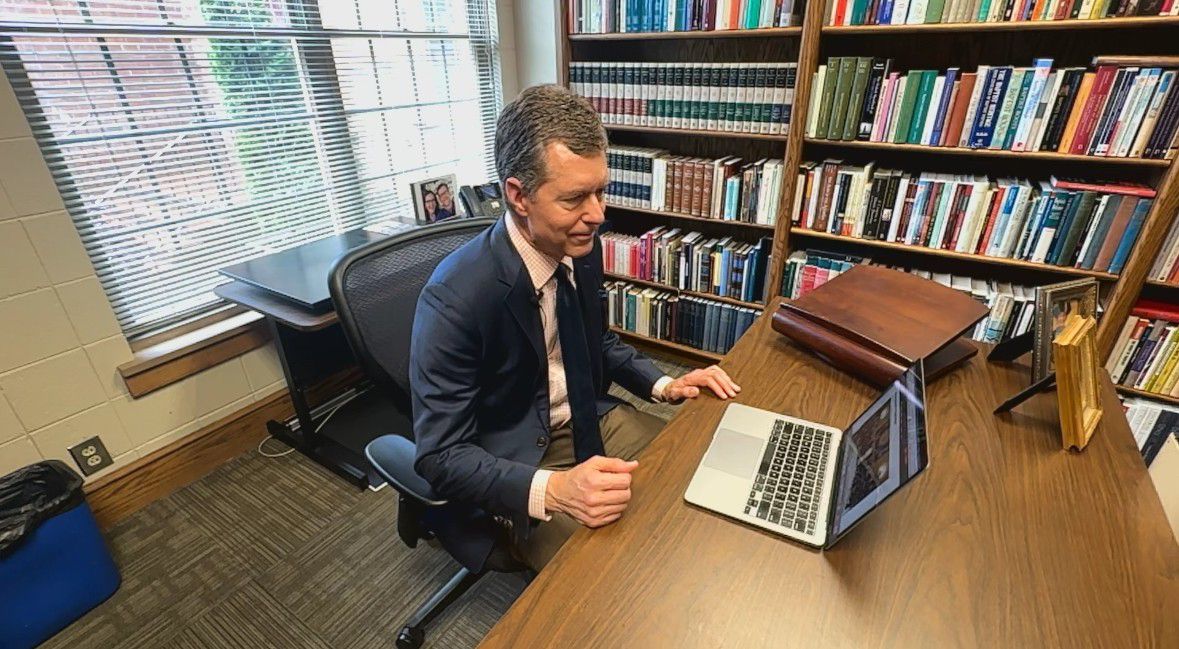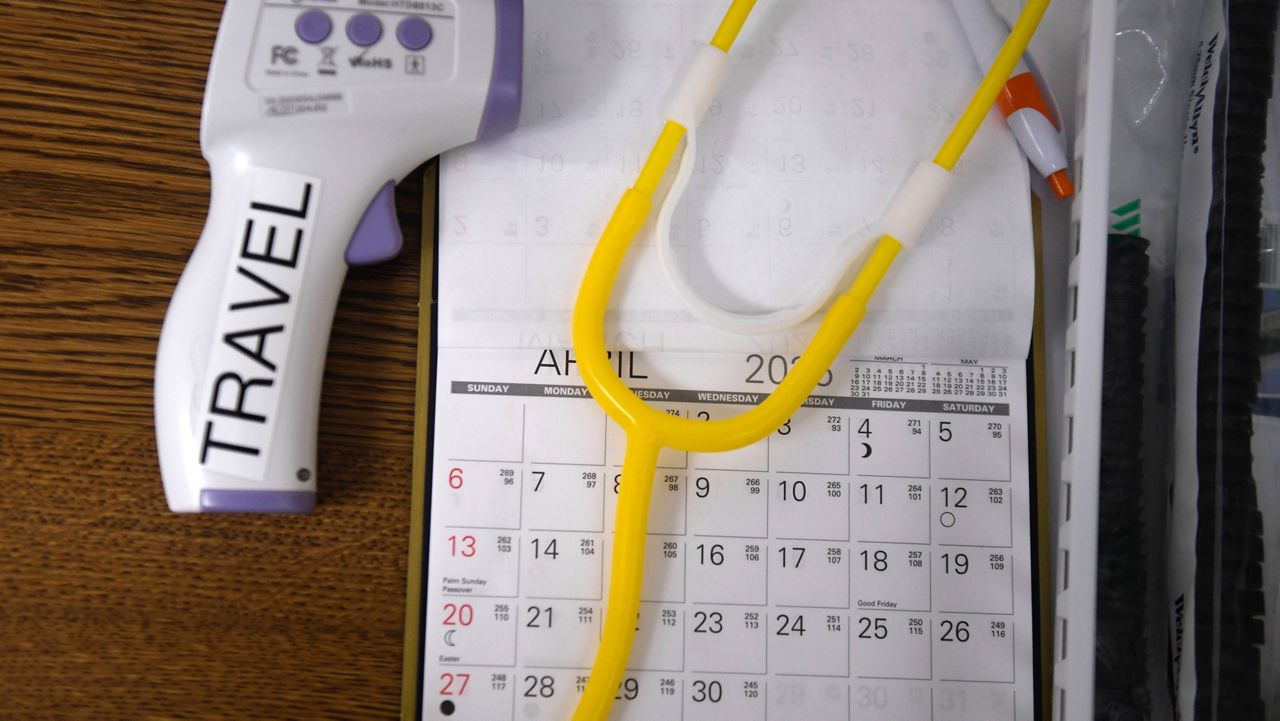RALEIGH, N.C. — The North Carolina State Fair is the highlight of the year for many who travel to enjoy the food, rides and family fun, but a little removed from the bright lights and carnival atmosphere is an experience people won't find on the midway.

A section of the fairground known as Heritage Circle is meant to be a step back in time for all who visit
Heritage Circle is open every day of the fair from 9 a.m. until the fireworks at 9:45 p.m.
They teach classes at Heritage Forge, the blacksmith shop, every other Saturday for any kids or adults who are interested
In the lesser known corner of the fair there's a blacksmith working to pass on his skills before they become a lost art. For the 11 days the fair is in town Heritage Forge is operational, run by blacksmiths who belong to the Artistic Blacksmith's Association of North Carolina.
“It tests all your senses. it allows the creative juices to flow,” Tom Watkins, a blacksmith at Heritage Forge, said.
Watkins fell in love with a hammer and forge 30 years ago when his wife gave him blacksmith classes as a gift. And while he'll admit the hobby is unusual, something about traveling back in time captures his attention.

“Not many people realize what we do or where things come from,” Watkins said.
For anyone paying a visit to Heritage Circle, a trip to the fair can suddenly turn educational as people learn where ironwork comes from and the origins of blacksmiths in America, when everything from nails to wheel rims had to be made by hand.
“Unfortunately it's a lot of crafts that are like this, like the village of yesteryear, basketmakers, carpenters, people that are skilled with working with their hands and for some reason we've gotten to the feeling that working with your hands is not a good thing,” Watkins said. “When it's actually a great thing.”
Watkins likes to compare it to playing with Play-Doh when the iron reaches the point of being malleable — notably it's a few thousand degrees hotter than the childlike clay — but he likes the analogy because it reminds people that strength is not key in blacksmithing. Rather skill and technique are what are necessary.
“With skill of the anvil and your hammer, you can move that material,” Watkins said. “One of the demos I do is I tie a knot in a piece of steel.”
Outside of fair time, Watkins and other blacksmiths give lessons every other Saturday to anyone interested in learning more about smithing. He said some of their most accomplished blacksmiths are under the age of 10.
Along with the blacksmith shop you can find a tobacco barn, old grist mill and cider house in addition to antique tractors and homemade ice cream in Heritage Circle.










